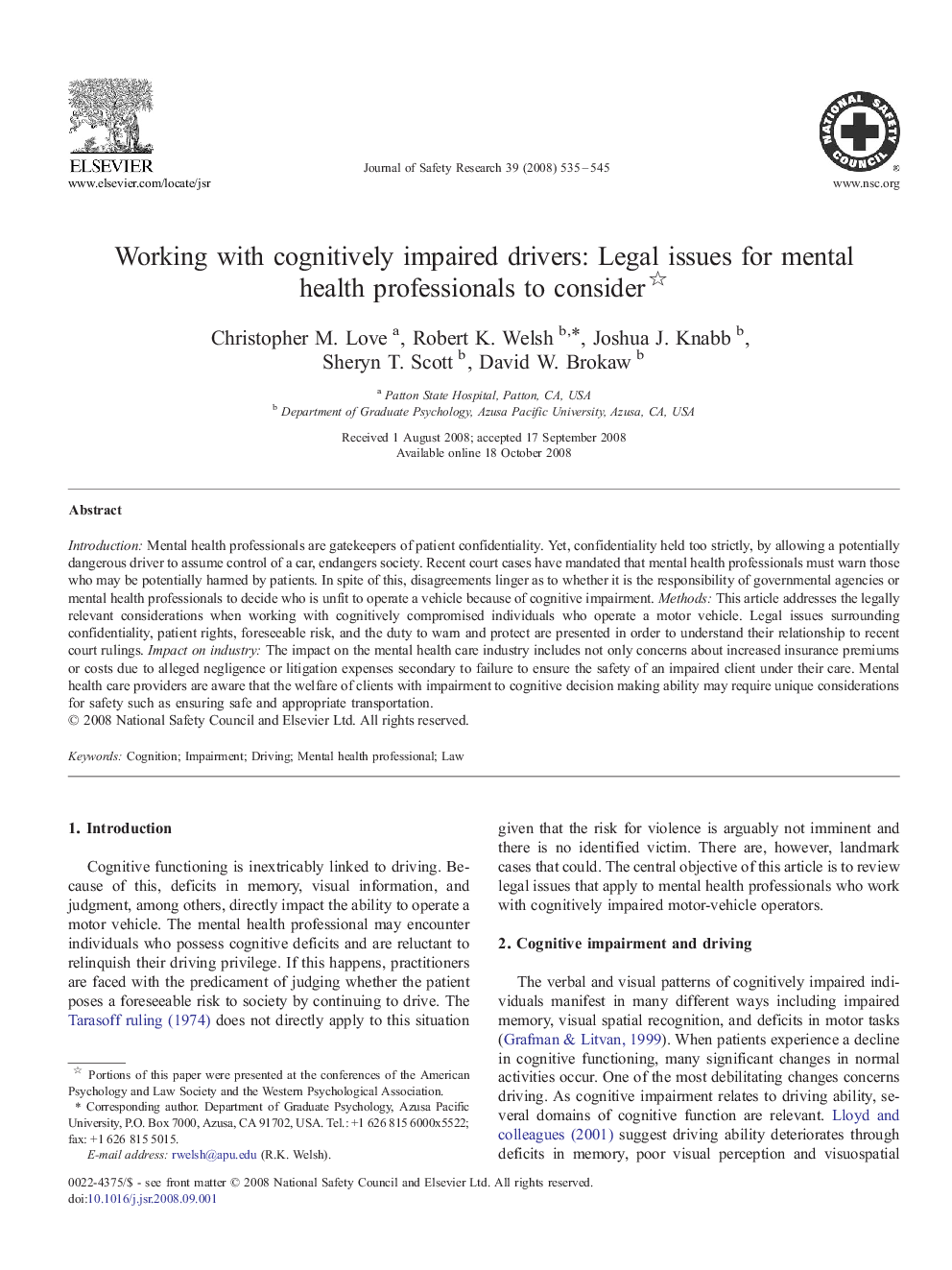| Article ID | Journal | Published Year | Pages | File Type |
|---|---|---|---|---|
| 587952 | Journal of Safety Research | 2008 | 11 Pages |
IntroductionMental health professionals are gatekeepers of patient confidentiality. Yet, confidentiality held too strictly, by allowing a potentially dangerous driver to assume control of a car, endangers society. Recent court cases have mandated that mental health professionals must warn those who may be potentially harmed by patients. In spite of this, disagreements linger as to whether it is the responsibility of governmental agencies or mental health professionals to decide who is unfit to operate a vehicle because of cognitive impairment. Methods: This article addresses the legally relevant considerations when working with cognitively compromised individuals who operate a motor vehicle. Legal issues surrounding confidentiality, patient rights, foreseeable risk, and the duty to warn and protect are presented in order to understand their relationship to recent court rulings.Impact on industryThe impact on the mental health care industry includes not only concerns about increased insurance premiums or costs due to alleged negligence or litigation expenses secondary to failure to ensure the safety of an impaired client under their care. Mental health care providers are aware that the welfare of clients with impairment to cognitive decision making ability may require unique considerations for safety such as ensuring safe and appropriate transportation.
